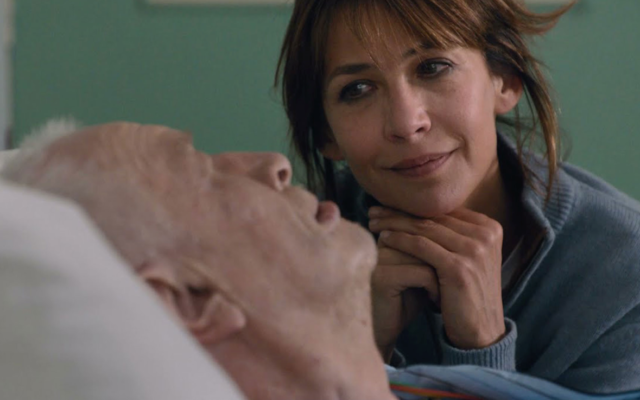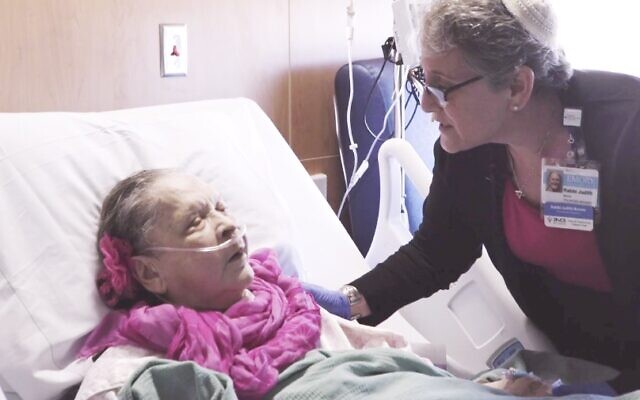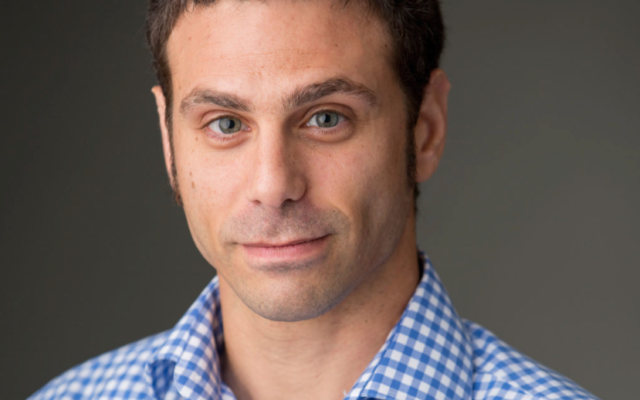AJFF Film Examines Right to Die Issues
Assisted suicide as a family concern is the subject of new French film.

The French film, “Everything Went Fine,” about how a wealthy and successful Jewish industrialist decides to end his life, is one of the thornier issues that the Atlanta Jewish Film Festival has taken on this year.
The film, which was written and directed by the talented, veteran director Francois Ozon, bravely examines a subject that most filmmakers have chosen to avoid, the subject of assisted suicide as a way to end the life of someone who is chronically ill.
It is based on an autobiographical novel published in France in 2013 by Emmanuele Bernheim about helping her father to have an assisted suicide. Rabbi Judith Beiner is the community chaplain at Jewish Family and Career Services. She knows from professional and personal experience how difficult end of life decisions can be. Her own father suffered a serious stroke in July of 2021 and before he died in November of that year he asked her for help in ending his life. She reluctantly refused.

“I was one of two daughters caring for an aging father who was debilitated and wanting to take his own life. And we couldn’t, it wasn’t legal in the state where he was. He didn’t have a terminal diagnosis. So, we knew there was no way for him to do it. And it was awful, awful seeing him so miserable. I would have if I could have helped him grant his wishes, I would have.”
Today, assisted suicide is legal in Canada and five European nations, including Switzerland which is one of the few countries to accept non-residents.
There are eight states and the District of Columbia where physician assisted suicide is legal if strict guidelines are followed. None are in the south. At the same time, nine states, including Georgia, have strengthened their laws against assisted suicide. Beiner believes the issue is one of the most difficult our society faces.
“When my father was dying, I really had a hard time being objective about everything. And again, even in that objectivity, I see both sides. Why it shouldn’t be done and why it should be done. This is a dilemma for our time. This is a big ethical and moral and emotional dilemma for our time.”

While the film, “Everything Went Fine,” generally avoids a deep discussion of all the legal and religious issues that are involved, it was, for some, difficult to watch. Rabbi Beiner felt it should have come with a warning label.
“I think the film for even for people not going through this, I think the film will leave some with more questions than answers. And it can be pretty difficult to watch, I think people can expect to have some of their emotions deeply activated in a very strong way.”
Rabbinic opinion on assisted suicide in recent years has remained largely static, the major rabbinic denominations have remained opposed to the taking of a human life.
As a senior fellow at the Center for the Study of Law and Religion at Emory University, Ira Bedzow, who is a bioethicist as well as an ordained Orthodox rabbi, maintains that the decision in Judaism to end our life is not one for us to make.
“The Jewish tradition basically says that we are not the owners of our life such that we can do whatever we want with it. It has the premise that God gave us life and that we have responsibilities to it, such as to be a guardian, to preserve our life, but we don’t own it to be able to end it whenever we want.”
The dilemma, Bedzow believes, stems not from the way Jewish belief is challenged, but in the way some have come to view our end of life decisions.
“In America, death with dignity has gained popularity because there has been a push towards the idea of personal autonomy. Right now, autonomy is the ability for a person to make a reasonable decision, and the determination of what is reasonable is based on what the person himself or herself defines as a reasonable right. So it becomes a matter of free choice or a personal decision.”
Whether there is, in fact, a change in how we make our decisions about the end of life or not, Beiner, who as the community rabbi listing those in hospice care and hospital room, is continually confronted by the issue.
“It’s personally and professionally present just about every day. And maybe that in and of itself is the message here. Yes. this is a gut-wrenching topic to have to face for families and those who are the patients.”
- Arts and Culture
- AJFF
- Local
- Bob Bahr
- Everything Went Fine
- Atlanta Jewish Film Festival
- François Ozon
- assisted suicide
- Emmanuele Bernheim
- Rabbi Judith Beiner
- Jewish Family and Career Services
- Emory’s Center for the Study of Law and Religion
- death with dignity
- personal autonomy
- right to life
- Euthanasia



comments